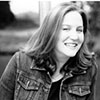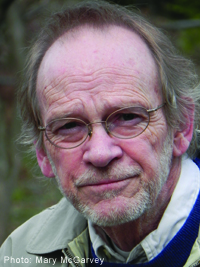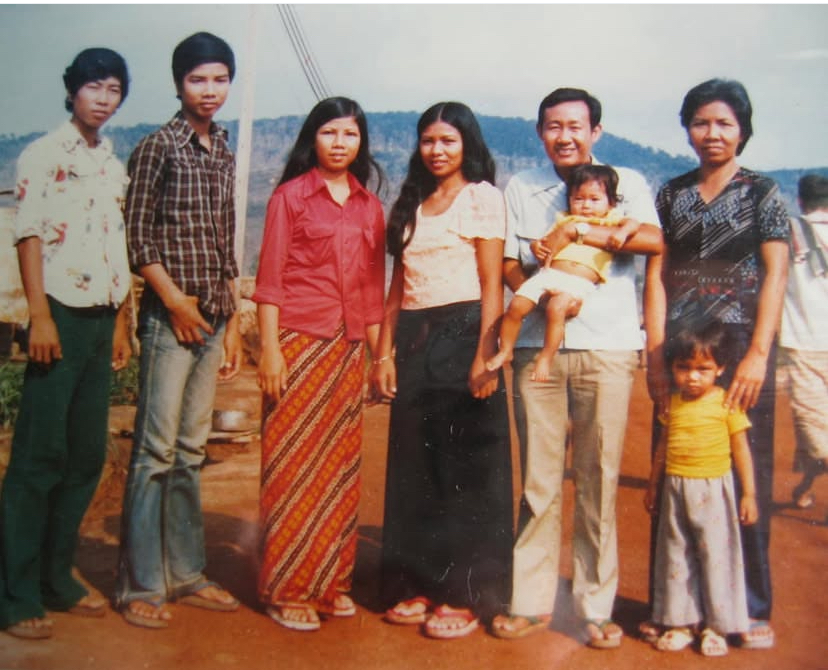Growing Home
An only child contemplates her unlikely path to motherhood
I spent my young years tearing out pages of the JCPenney catalog, creating collages of happy families: a baby from children’s wear pasted into the arms of a woman who, prior to my scissors, had been modeling cookware; a couple from sporting goods glued into a dining room, their tennis rackets poised recklessly close to the china cabinet. I owned every board game that could be played by two players and irritated my mother by begging her join me. One Christmas she bought me Clue, a three-player game, and it taunted me mercilessly.
.jpg) I am an only child. I’ve come to learn, through idle conversation on playgrounds and articles in magazines, that this label predisposes me to be self-centered, self-confident, and accustomed to getting my own way. Evidently “only child” is synonymous with “center of attention.” I’ve decided I need to hyphenate. In the same way that “in-law” conjures images of a completely different relationship than simply “mother,” I’ve been searching for a single word that more accurately describes my place in my family. I’ve yet to find it. In the meantime, accident-that-happened-one-time-only-child will have to do.
I am an only child. I’ve come to learn, through idle conversation on playgrounds and articles in magazines, that this label predisposes me to be self-centered, self-confident, and accustomed to getting my own way. Evidently “only child” is synonymous with “center of attention.” I’ve decided I need to hyphenate. In the same way that “in-law” conjures images of a completely different relationship than simply “mother,” I’ve been searching for a single word that more accurately describes my place in my family. I’ve yet to find it. In the meantime, accident-that-happened-one-time-only-child will have to do.
My parents entered into marriage under the duress of an unplanned pregnancy, and spent the next nine brutal years locked up together, punishing each other for the mistake. This is not to say my childhood was a terrible one. Though I was sometimes a weapon in their war, more often I was a comfort, like a pack of smokes, or a walk in the rec yard. I was a small consolation. Still, parenthood was not an institution they had walked into willingly. They were involuntarily committed.
By the time I graduated high school I had decided that I would never have children. Infants were sweet but I couldn’t stand toddlers and had long since stopped babysitting them. Older kids were okay, but boring. I longed to spend time with adults. I understood from years of listening to my parents and their friends bitch that children would be a burden, that their constant need for care and attention would cramp whatever style I hoped to have. Frankly, given what I’d learned about having kids, I couldn’t figure out why anyone would want to do it.
 I had my first baby at twenty-six. It wasn’t so much a decision as it was a startling win in the battle of “don’t tell me what’s possible” that I’d been fighting with various doctors for five years.
I had my first baby at twenty-six. It wasn’t so much a decision as it was a startling win in the battle of “don’t tell me what’s possible” that I’d been fighting with various doctors for five years.
I was stunned by motherhood, crushed by my need to do it perfectly and my countless abject failures. I had no idea how I would survive it, especially in this new age, where evidently children were not just to be endured, as I’d been taught, but also enjoyed. Most terrifying of all, I knew I’d have to do it again: from the moment my daughter was born there was the specter of a sibling. I wasn’t sure what accounted for my lonely childhood, but I planned on eliminating a missing playmate as a possibility. I would find a way to survive what must be done. In for a penny, in for a pound.
 My son was born nine days before my daughter’s third birthday. It was a different experience from the start. When his sister held him, or tickled his tiny wrinkled feet I was in heaven. I wept when he hit each milestone instead of sighing with resignation and relief. It became apparent that my daughter’s infancy had been marred by deep postpartum depression. I grieved all the things that I had missed out on the first time around. My second pass at motherhood brought me something I’d never been taught to expect: joy.
My son was born nine days before my daughter’s third birthday. It was a different experience from the start. When his sister held him, or tickled his tiny wrinkled feet I was in heaven. I wept when he hit each milestone instead of sighing with resignation and relief. It became apparent that my daughter’s infancy had been marred by deep postpartum depression. I grieved all the things that I had missed out on the first time around. My second pass at motherhood brought me something I’d never been taught to expect: joy.
Today, I have five children. It’s chaotic. It’s raucous and exhausting and there’s very little down time. Still, it doesn’t cramp my style. It is my style. I can complain with the best of them about the thankless drudgery of motherhood, but at the end of the day I’m not scratching tally marks onto my prison wall; I’m sending up prayers of gratitude. It turns out that not everyone who bitches about their children thinks having children is a bitch. It’s a subtle but vital distinction: the difference between having kids at home and being at home with having kids. Being part of a happy family will always flummox me; I’m learning as I go. I’ll never be perfect at it. My kids kick my butt at Clue.

Copyright (c) 2015 by Jen Wallwork Dominguez. All rights reserved. “Growing Home” won first place in the adult division of the 2015 Nashville Reads essay contest, which was sponsored by the Porch Writers’ Collective. Jen Wallwork Dominguez is an erstwhile songwriter and very surprised mother of five. She’s lived in Nashville for eleven years with her theatre-directing husband and an ever-growing cast of children and pets, and she writes about motherhood, money, and life in the arts on her blog, Life in the Circus..


